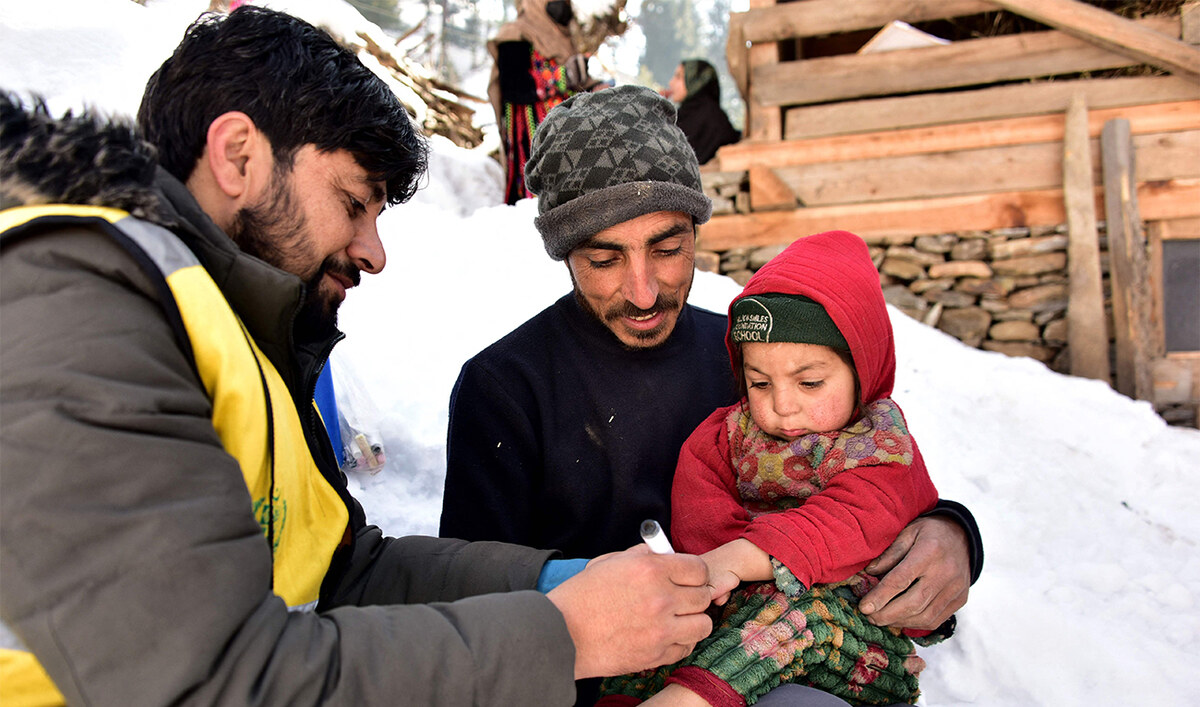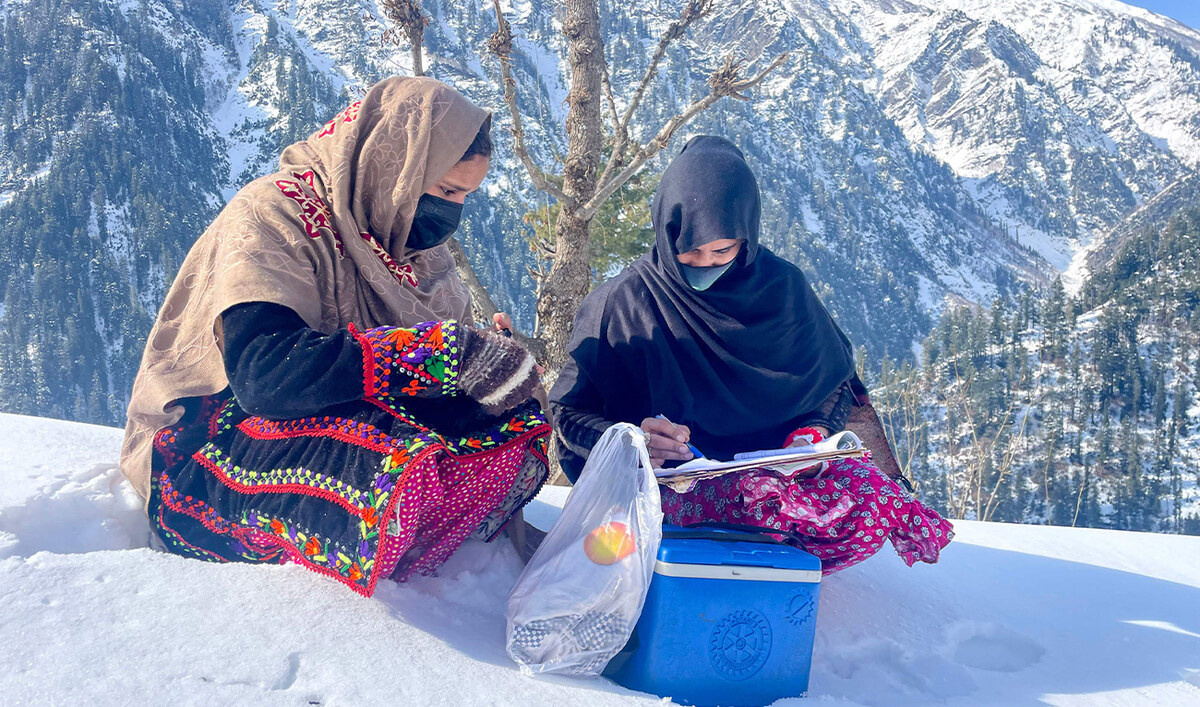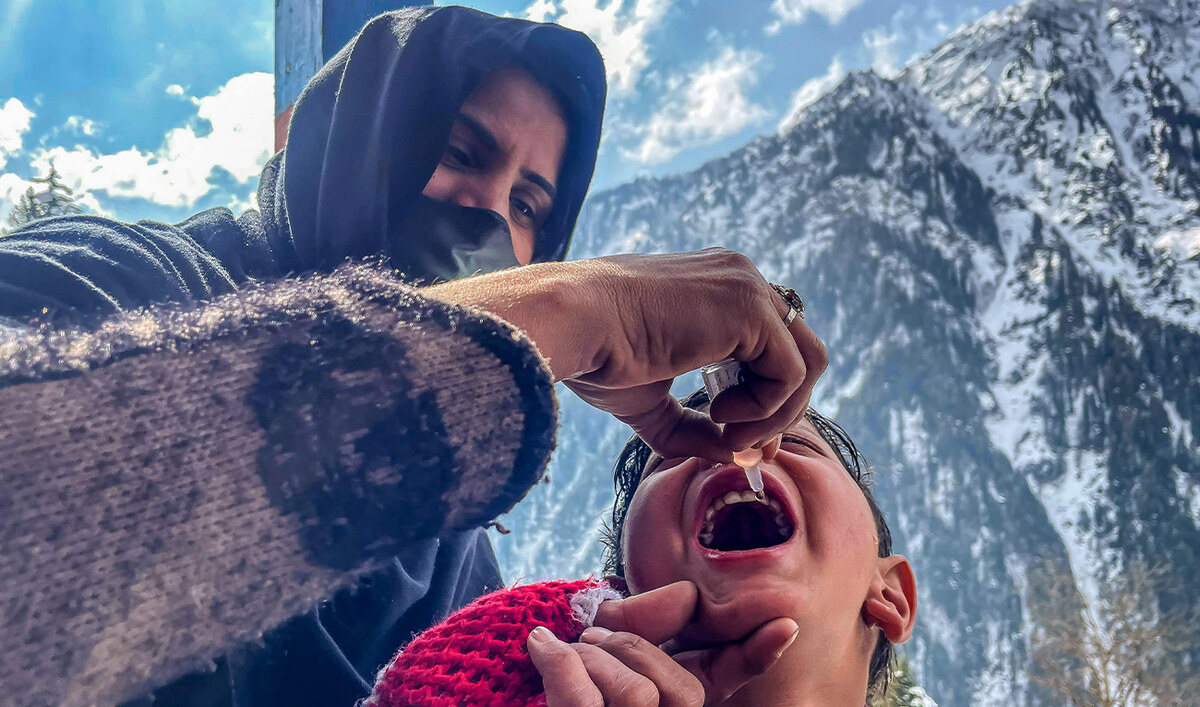ISLAMABAD: Pakistan’s upper house of parliament on Tuesday passed a bill to amend the country’s cybercrime law amid a walkout by opposition leaders and journalists who fear the new legislation will be used to censor social media platforms.
Pakistan adopted the much-criticized Pakistan Electronic Crimes Act (PECA) in 2016, granting sweeping powers to regulators to block private information they deemed illegal. The law provided for up to seven years in prison for “recruiting, funding and planning of terrorism” online. It also allowed “authorized officers” to require anyone to unlock any computer, mobile phone or other device during an investigation.
The government said at the time restrictions under the new law were needed to ensure security against growing threats such as terrorism and to crackdown on unauthorized access, electronic fraud and online harassment. However, journalists and rights activists complain that the law has been largely used to go after journalists, bloggers and other people critical of the government and state institutions like the military.
The new amendment bill now proposes the establishment of the Social Media Protection and Regulatory Authority to perform a range of functions related to social media, including awareness, training, regulation, enlistment and blocking. SMPRA would be able to order the immediate blocking of unlawful content targeting judges, the armed forces, parliament or provincial assemblies or material which promotes and encourages terrorism and other forms of violence against the state or its institutions. The law also makes spreading disinformation a criminal offense punishable by three years in prison and a fine of two million rupees ($7,150).
After being passed by both houses of parliament, the bill now needs the president’s ascent to become law.
“I have heard more ‘yes’ than ‘no’, so the bill is approved,” Syedaal Khan, deputy chair of Pakistan’s Senate, said amid protests from the opposition and journalists who walked out of the gallery.
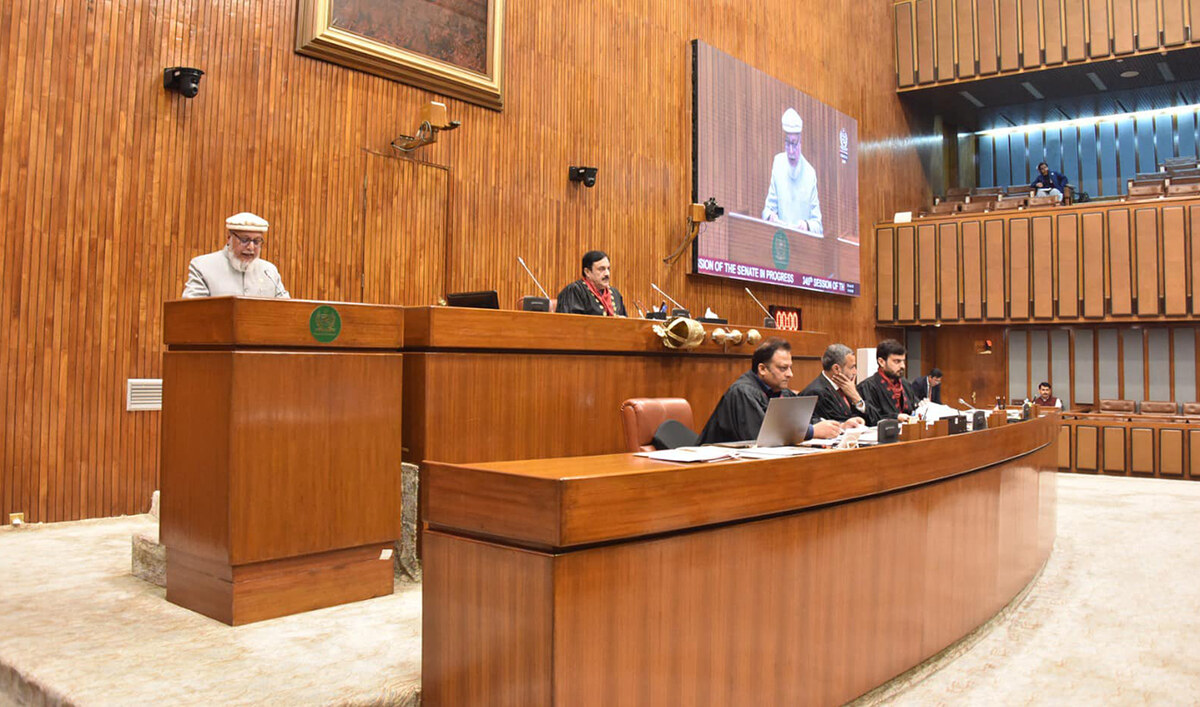
Syedaal Khan, deputy chairman of Pakistan’s Senate, chairs the session as the controversial ‘Prevention of Electronic Crimes Act’ bill put for voting in Pakistan’s upper house of parliament in Islamabad on January 28, 2025. (PID)
The main opposition party, the Pakistan Tehreek-e-Insaf, called the law “draconian,” saying it would be used to suppress media freedom.
“Second battle will be a constitutional battle in the courts and for that the [party] leadership is consulting lawyers,” the PTI said in a statement shared with reporters.
“We will challenge this and we will keep resisting till this black law is taken back.”
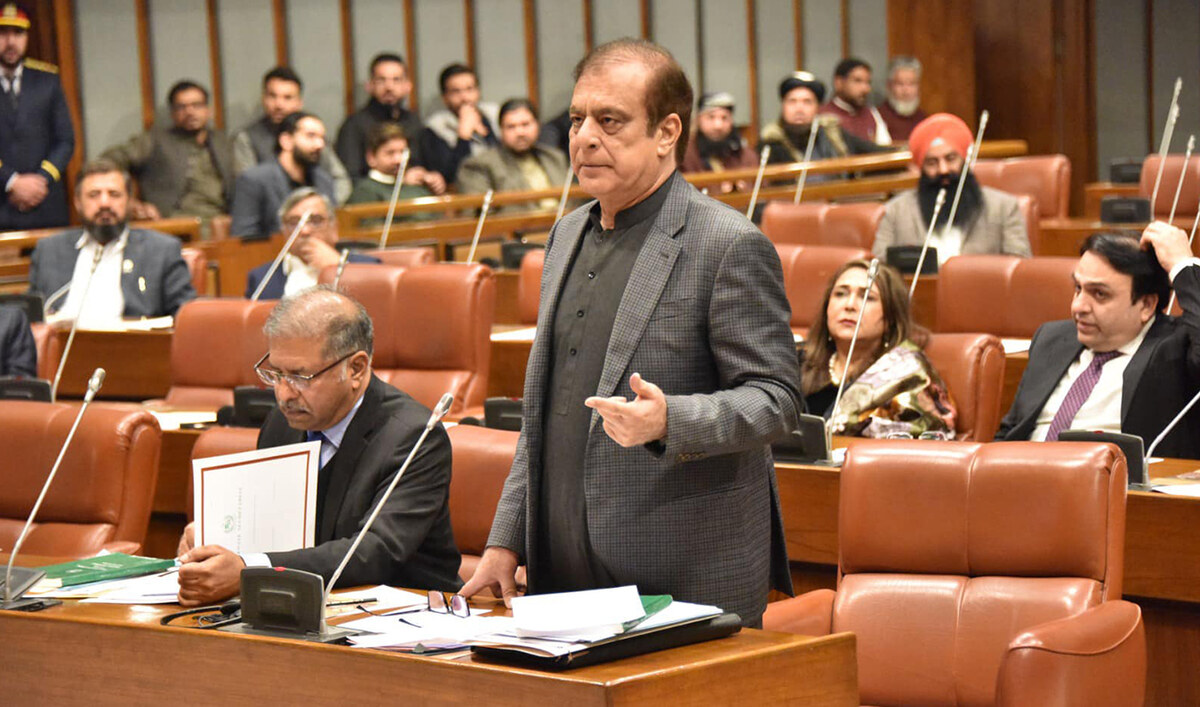
Opposition lawmaker Shibli Faraz debates on the controversial ‘Prevention of Electronic Crimes Act’ bill in Senate of Pakistan in Islamabad on January 28, 2025. (PID)
A copy of the bill seen by Arab News has set imprisonment of up to three years and a fine of Rs2 million or both for “whoever intentionally disseminates, publicly exhibits, or transmits any information through any information system, that he knows or has reason to believe to be false or fake and likely to cause or create a sense of fear, panic or disorder or unrest in general public or society.”
The bill was presented in the National Assembly on Thursday by Federal Minister Rana Tanveer Hussain from the ruling Pakistan Muslim League-Nawaz party of premier Shehbaz Sharif.
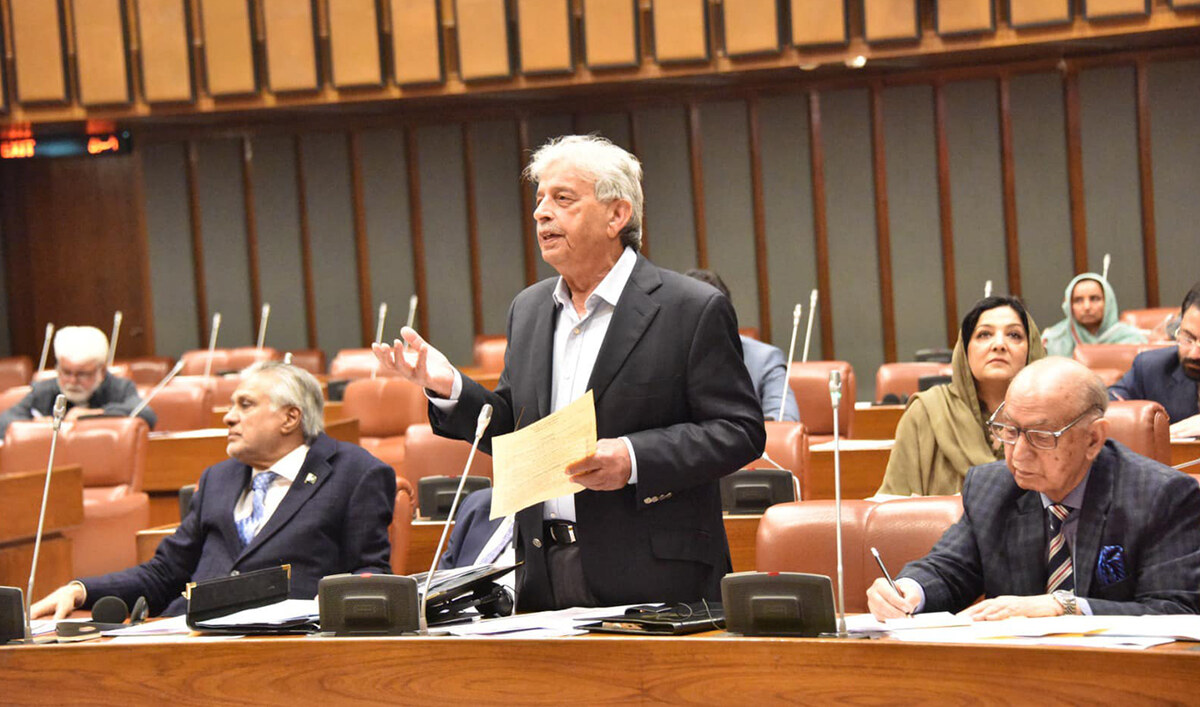
Government lawmaker Rana Tanveer Hussain tables ‘Prevention of Electronic Crimes Act’ bill in Senate of Pakistan in Islamabad on January 28, 2025. (PID)
“The bill will not harm but protect working journalists,” Information Minister Ataullah Tarar told reporters after the passage of the bill by the lower house of parliament last week. “This is the first time the government has defined what social media is. There is already a system in place for print and electronic media and complaints can be registered against them.”
He said “working journalists” should not feel threatened by the bill, which had to be passed because the Federal Investigation Agency, previously responsible for handling cybercrime, “does not have the capacity to handle child pornography or AI deep fake cases.”
Tarar said the government was also aiming to bring social media journalists, including those operating YouTube accounts, under the tax framework.
The operative part of the new bill outlines that the Social Media Protection and Regulatory Authority would have the power to issue directions to a social media platform for the removal or blocking of online content if it was against the ideology of Pakistan, incited the public to violate the law or take the law in own hands with a view to coerce, intimidate or terrorize the public, individuals, groups, communities, government officials and institutions, incited the public to cause damage to governmental or private property or coerced or intimidated the public and thereby prevented them from carrying on their lawful trade and disrupted civic life.
The authority will also crackdown on anyone inciting hatred and contempt on a religious, sectarian or ethnic basis as well as against obscene or pornographic content and deep fakes.
Rights activists say the new bill is part of a widespread digital crackdown that includes a ban on X since February last year, restrictions on VPN use and the implementation of a national firewall.
The government says the measures are not aimed at censorship.









